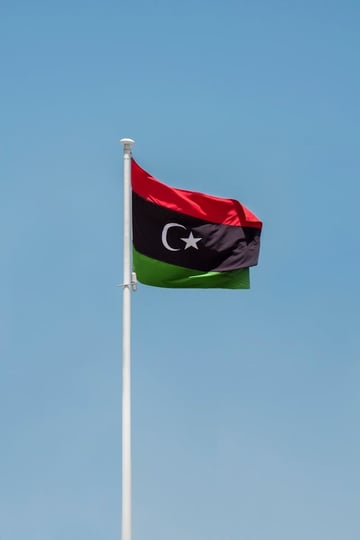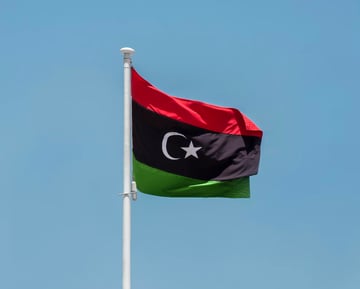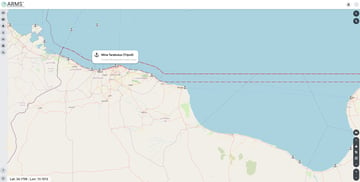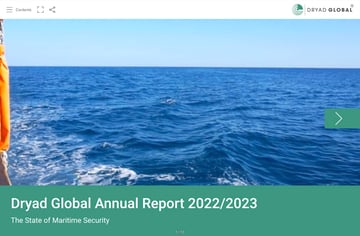What is happening in Libya?
Is Libya Safe?
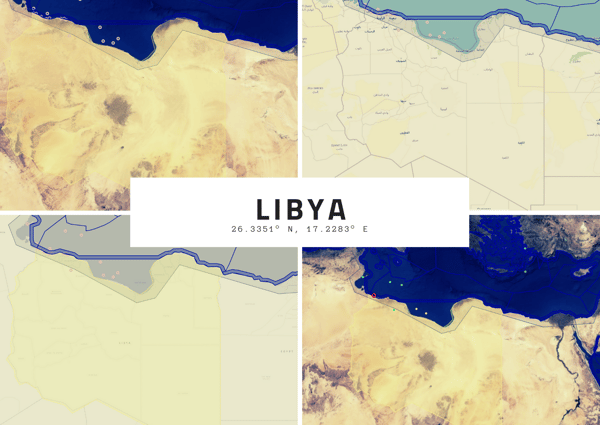
What is the geopolitical significance of Libya?
Libya is located in North Africa and shares land borders with Egypt, Sudan, Chad, Niger, Algeria and Tunisia and has a coastline on the Mediterranean Sea. The conflict between the LNA and GNA creates instability in the region that previously saw Libya as a stable state under the rule of Gaddafi. During his 40-year rule, Gaddafi’s strategy for governance was to play tribes off one another so that attention was focused on inter-tribe conflict rather than over-throwing their notorious leader. There are multiple geopolitical implications of the conflict in Libya.
Firstly both the LNA and the GNA have continued to conduct operations against terror groups in Libya. Terrorism remains a threat in Libya, particularly targeting government and oil infrastructure; however, US government assessments indicate the number of operatives and capability of groups operating in Libya has significantly decreased since the expulsion of ISIS from Sirte in 2016, with ISIS no longer controlling any territory in Libya. Secondly, the conflict has created a vacuum in which illegal trafficking and migration are thriving. People from across Sudan, Mali, Eritrea, Algeria and Syria are taking advantage of the lawlessness in Libya to risk the treacherous journey across the Mediterranean to reach Europe via the Libya-Italy crossing. The primary beneficiaries are organised crime networks who make hundreds of millions per year moving people as well as drugs, contraband and arms through the same network. Thirdly, the Libyan conflict has created a “double-barrelled existential crisis” for the European Union. The increased number of migrants attempting to cross the Mediterranean has seen thousands die and increasing nationalism in Europe. At the same time, Europe is taking little responsibility for a conflict it is fuelling through the support of the opposing sides in the conflict and in demand for oil. Furthermore, Libya’s proximity to Europe, 450 miles from the continent and inaction towards human suffering stemming from the conflict is seen by some as an indication that the EU is disinterested in engaging with geopolitics that do not directly benefit the block.
Is Libya safe?
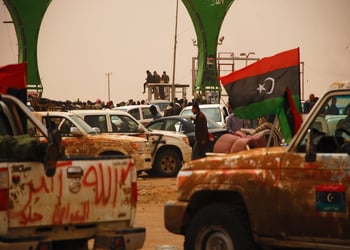 The political situation in Libya remains fragile and the security situation remains dangerous and unpredictable. The UN High Commission for Refugees assess that more than 1.3 million people are in urgent need of humanitarian assistance. Reports of violence, protests, reprisal killings, looting and human rights abuses are ongoing. Many governments are currently advising their citizens to avoid travelling to Libya. All airports in Libya are vulnerable to attack; due to ongoing safety concerns, the EU has agreed with Libyan authorities to continue a voluntary restriction on Libyan airlines flying into the EU.
The political situation in Libya remains fragile and the security situation remains dangerous and unpredictable. The UN High Commission for Refugees assess that more than 1.3 million people are in urgent need of humanitarian assistance. Reports of violence, protests, reprisal killings, looting and human rights abuses are ongoing. Many governments are currently advising their citizens to avoid travelling to Libya. All airports in Libya are vulnerable to attack; due to ongoing safety concerns, the EU has agreed with Libyan authorities to continue a voluntary restriction on Libyan airlines flying into the EU.
Maritime Security Context
The security situation in Libya can change rapidly so it is recommended that vessel operators warn their crew of the volatility of the situation, check with local port authorities as to the ports status, and carry out an assessment of the risks involved prior to entering or transiting Libyan waters. The area offshore of Derna remains the primary area of risk when transiting the Libyan coast, vessels are advised to remain 60nm offshore when transiting this area.

The General Command of the Libyan National Army issued a statement on 16 March 2021 that they would not oppose Turkish flagged vessels access to Eastern Libyan Ports. Ships sailing through Western Libyan waters should also be aware of small boat traffic (human trafficking and migration between Libya-Italy) that might lead to safety-at-sea scenarios. This is more likely during the summer months, particularly on the western coast of Libya, but ships should be aware year-round. The Covid-19 situation poses further risks for ships and their crews. Operators must stay on top of port and travel restrictions as well as local Covid-19 restrictions and preventative measures.
For the latest Libya security insights subscribe to receive our weekly Libya report.
What is happening in Libya?
Conflict in Libya has been ongoing since the Arab Spring uprising in 2011. The NATO-backed uprising toppled Libya’s leader of 40 years Muammar Gaddafi and later that year led to his death. Libya now has two rival administrations. The Government of National Accord (GNA) based in Tripoli, recognised by the U.N. and supported by Turkey, Qatar, Italy and the USA and led by Fayez al Sarraj. The Libyan National Army (LNA) based in Tobruk, backed by the Libyan House of Representatives and supported by Russia, Egypt, France, Saudi Arabia and the UAE and led by Khalifa Haftar. In February 2021, the Libyan Political Dialogue Forum selected an interim government to serve until the elections currently set for December 2021. Despite this, the conflict in Libya remains a proxy-war. The foreign states that are supporting the GNA and LNA do so to defend ideological, economic and national security interests. Currently Turkey and Russia are the most influential external players in the conflict. Maritime areas disputes, regional power tussles and oil remain the dominating areas of foreign interest in Libya.
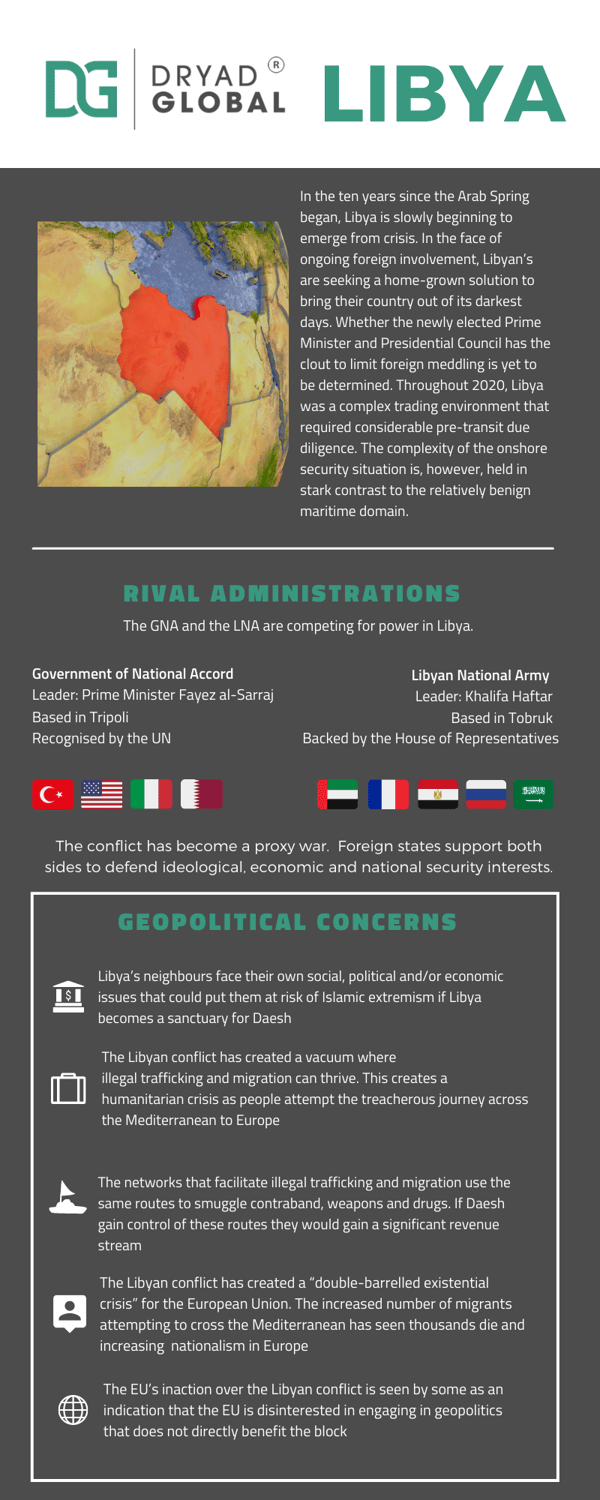
What significant security incidents or political agreements have happened in the last 12 months in Libya?
Since January 2020, all onshore oil fields and terminals had been intermittently blockaded by forces aligned with LNA. On September 18 the LNA reached an agreement with the GNA to immediately restart oil production and exports. This agreement mandated the creation of a joint technical committee with members of both factions, to oversee the distribution of oil revenues. In September 2020, NOC lifted force majeure measures from ‘safe’ fields and oil terminals but retained these restrictions for those that continued to be under attack from militias or infiltrated by foreign mercenaries. In mid-October 2020, following the official ceasefire agreement, the NOC lifted its force majeure on the remaining two oil export terminals, Ras Lanuf and Es Sider, and onshore oil fields. In January 2021, the local Petroleum Facilities Guard, , forced the shut-down of Ras Lanuf, Es Sider and Marsa el-Hariga terminals, in protest of an ongoing pay dispute, which have since been resolved.
An official ceasefire was signed by the members of the 5+5 Joint Military commission on 23 October.
From the 5+5 JMC the Libyan Political Dialogue Forum was established, made up of representatives from around the country. The agreement was made just months before a scheduled summit between the two sides in Tunisia. The U.N. selected 75 participants to be in attendance. During the summit a preliminary agreement was reached to hold “free, fair, inclusive and credible parliamentary elections and presidential debates”, within the next 18 months. December 24th was set as the date for the presidential and parliamentary elections. The 5+5 Joint Military Commission discussions in collaboration with the United Nations Support Mission in Libya and the Libyan Political Dialogue Forum (LPDF) are ongoing, making significant progress in cross faction agreements. Including the exchange of prisoners and reopening of oil and port infrastructure. The LPDF selected an interim Prime Minister and 3 member Presidential Council in Geneva to serve until the elections in December 2021. Concerns were raised over interference in this selection process by international and domestic players, however the Libyan parliament voted to approve the interim government, called the Government of National Unity (GNU), and tentative progress has begun to be made with the reunification of the Libyan financial system.
The selection of an Interim Prime Minister and Presidential Council is promising for Libya because it demonstrates that the LPDF has sufficient independence to make a somewhat unanticipated selection – it selected individuals without strong political backing and in the middle ground between the LNA and the GNA. Selecting some of the least contentious candidates will likely not provoke conflict in the short term and has been broadly supported and welcomed throughout Libya. Reporting indicates that the Interim Prime Minister designate, as well as the Head of the Presidential council, have previous trade and diplomatic ties with Turkey. An enduring point of agreement between Libya-wide factions is that a solution to the ongoing situation must come from Libyans and that the security situation is aggravated by the presence of foreign forces furthering their own agendas. Perceived catering to foreign interests by any party is highly likely to reignite conflict in Libya. For the interim government to succeed in beginning to reunite the country, it is essential that foreign powers release the pressure to cater to foreign interests and foreign personnel leave Libya.
Libya oil production – how has Libya’s oil been affected by the conflict?
Libya has Africa’s largest proven oil reserves, the 9th largest in the world. With approximately 48.8 billion barrels, Libya was able to produce 1.7 million bpd prior to the toppling of the Gaddafi regime. Once the conflict began in 2011, production began to decrease. Initially Libya was stable enough to continue pumping oil. In 2012, Libyan oil amounted to ten percent of all European oil imports. However, increasing tensions between GNA, LNA and rival militias such as The Petroleum Facilities Guard (who had previously been responsible for guarding Libya’s critical energy infrastructure), led to the destruction of much of Libya’s energy infrastructure. By 2015 the only infrastructure operating was in the Sarir cluster field in the east, the Sharifs port a Tobruk and a handful of platforms of the coast of Tripoli.
The GNA and LNA are fighting for control of the country’s oil reserves. The National Oil Corporation (NOC) is state-owned and therefore under the control of the GNA. The NOC is the only entity permitted to manage and sell Libyan oil. However, the LNA have attempted to break this monopoly, such as through the capturing of Libya’s ‘oil crescent’. Several European oil companies including Total, Repsol S.A., and Eni, have been active in Libya for decades and their operations have been severely impacted by the conflict. Eni is the largest foreign oil producer in Libya, however, it is facing increasing competition from Total who are expanding across the country. Libyan oil offers a strategic advantage to the European Union; following the war in Ukraine, the continent has been increasingly concerned about reducing its dependence on Russian oil. A conflict-free Libya could produce enough oil to lessen Europe’s dependence on Russian oil. However, Russia’s Tafnet has resumed exploration activities in Libya. While Libyan oil could prove advantageous to Europe’s international strategy, European countries are not unified in their position on political leadership in the country with France and Russia backing the LNA and Italy (and Turkey – is that part of Europe) backing the GNA. Adding complexity to this is the recent agreement between Libya and Turkey which delineates the exclusive maritime zones of both countries adding tension to ongoing disputes about oil and gas drilling rights in the Eastern Mediterranean.
What is the agreement between Libya and Turkey?
The Libya-Turkey maritime agreement is another significant political agreement, which was organised in response to a Greece-Egypt agreement. Read more
The GNA and Turkey signed a maritime deal, declaring they are neighbouring countries with adjacent coastal zones. This is a controversial and game-changing agreement in the Mediterranean; traditional application of the U.N. Law of the Sea determines that the two countries do not share a maritime border, however, the states do share a border between their continental shelves. This is the basis of Turkey and the GNA’s claims. The bilateral agreement delineates the exclusive maritime zones of both countries. Turkey is the GNA’s greatest foreign support providing financial support, weapons and military forces. This agreement moves their relationship between the GNA and Turkey from being one-sided to mutually beneficial. Turkey claims it is being excluded by Mediterranean states from its rightful access to maritime territory in the southern Mediterranean. This agreement enables Turkey to claim the right to increase the geographic area it is exploring to secure lucrative oil and gas fields. This is highly advantageous for Turkey as the natural-gas reserves in the region are estimated to be around 122 trillion cubic metres. The bilateral agreement was rejected by several countries with stakes in the Mediterranean, and was described as an illegal act that violated the sovereignty of other Mediterranean states. Furthermore, Egypt disputed the validity of the agreement on the basis that the GNA did not have the authority to make the deal unilaterally without the backing of the Libyan parliament. In January 2021, the bilateral agreement was declared unlawful by a Libyan court. In 2019 Turkey and the GNA also signed a security and military cooperation agreement.
Libya sanctions
In 2011 the United Nations Security Council imposed a series of sanctions on Libya, including an arms embargo, restrictions on dealing with the assets of certain people, travel bans on designated persons and the restriction on provision of certain services including military activity and armed mercenary personnel.
The Libya (Sanctions) (EU Exit) Regulations 2020 came fully into force on the 31st December 2020. They are intended to ensure compliance with the relevant UN obligations under UNSCR 1970, and to
- promote respect for human rights in Libya
- promote the peace, stability and security of Libya
- promote the successful completion of Libya’s transition to a democratic, independent and united country, and
- prevent migrant smuggling and human trafficking taking place from Libya
These regulations have replaced, with substantially the same effect, relevant existing EU legislation and related UK regulations.
Those persons subject to designation under this regime are included on the UK Sanctions List.
 Inform your Security Decisions 24/7/365
Inform your Security Decisions 24/7/365
Decision tools when you need them:
- Maritime security assessments
- Port risk assessments
- Country risk profiles
- Easy to understand risk metrics
- Maritime crime data and piracy analysis
Latest Libya Security News
Libya’s uphill struggle to attract oil investment
Libya, once a major player in global oil markets, faces challenges in realizing its oil potential due to a tumultuous history characterized by political instability, sanctions, and civil unrest. At it...
The Wagner Group’s Web in Libya
Russia has developed a complex network of influence in Libya through the Wagner group and will likely keep using private military actors to maintain its leverage. In a Nutshell The Wagner group has be...
Dryad Global Annual Report 2022/2023: Libya
In 2022, Libya continued to face a range of security challenges that had significant implications for the maritime domain. The ongoing conflict between the Government of National Unity (GNU) and the L...
Dryad Global Annual Report 2022/2023: The State of Maritime Security
Maritime Security Indian Ocean Gulf of Mexico South East Asia Libya West Africa ukraine maritime cyber security
Dryad Global's Annual Report 2022/2023: The State of Maritime Security is released today. Inside you'll find the latest intelligence on analysis on the Gulf of Mexico, Libya, Ukraine, South East Asia,...




